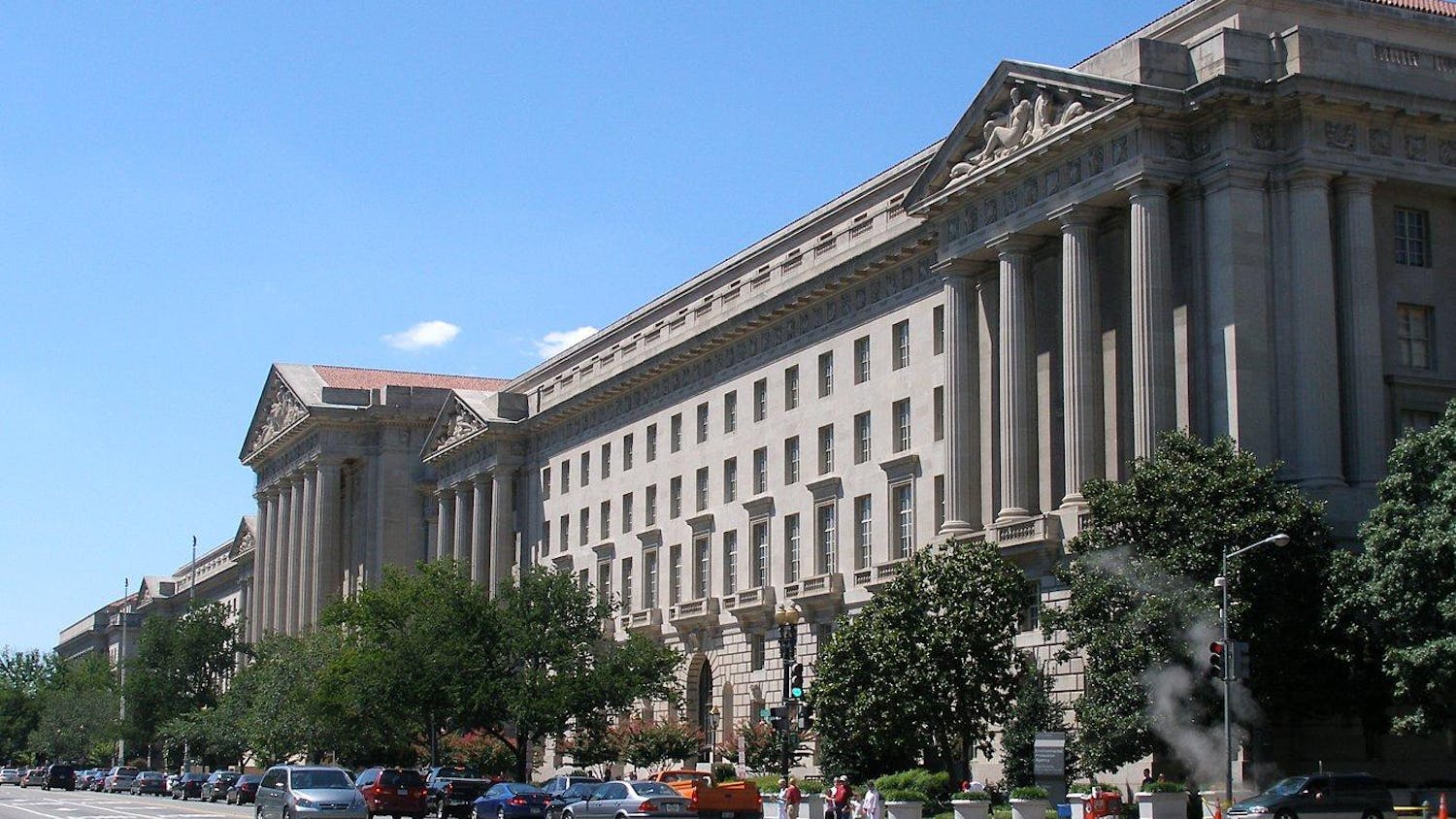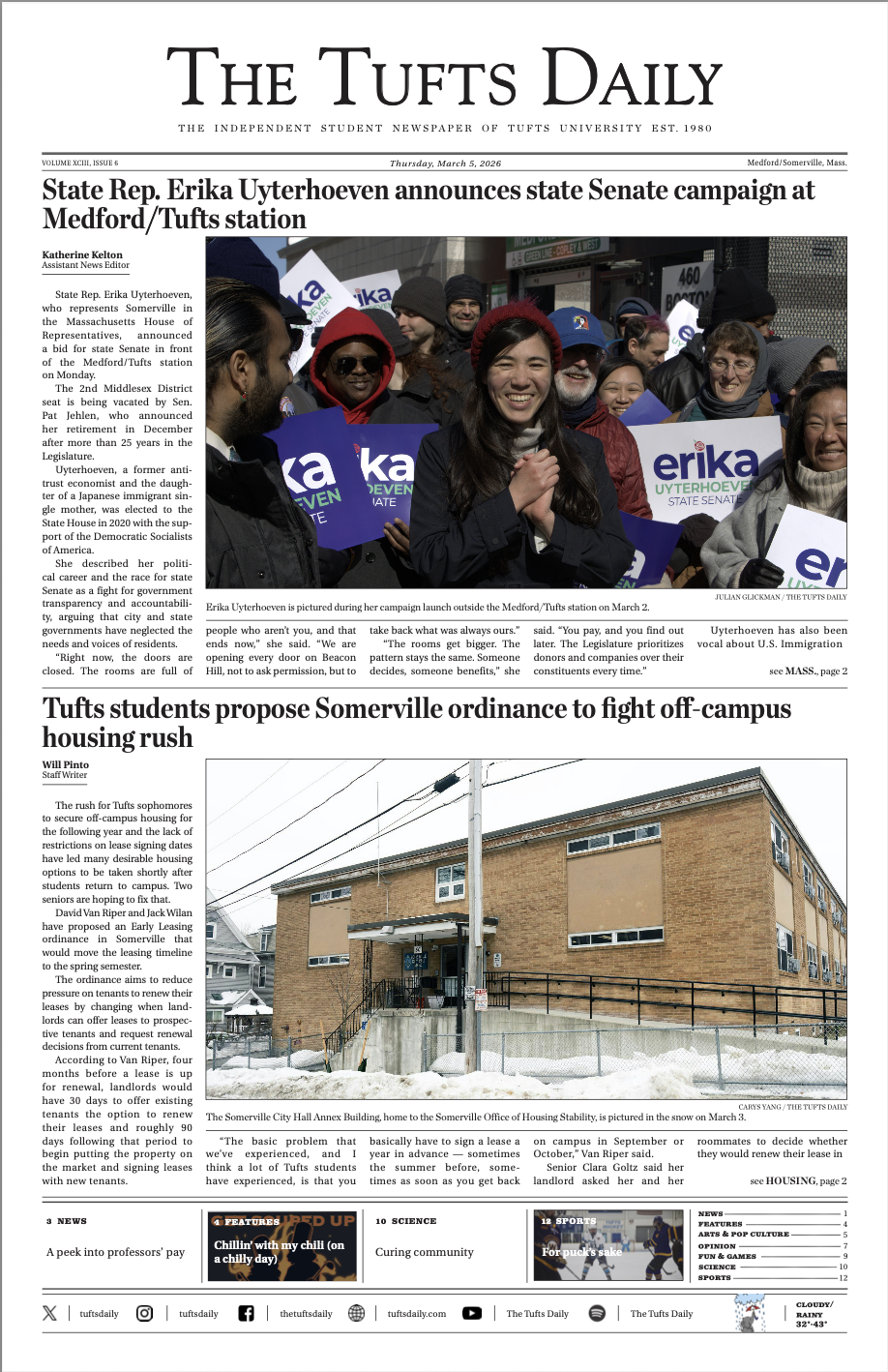After more than four years of activists speaking out and despite almost no coverage from corporate media, by now most people in the United States have at least a vague understanding that there is a brutal war happening in Yemen. This House-of-Saud-led siege war that the UN calls "the world's worst humanitarian crisis" would not be happening without U.S. support. What you may not know is that a significant portion of the bombs and missiles used in the war destroying Yemen are made by a company headquartered in Massachusetts, and that bomb maker, Raytheon, will be on Tufts' campus this Friday, hoping to recruit new employees.
A few numbers for perspective: Official casualty estimates are hard to come by and necessarily conservative, meaning the actual numbers are likely much higher. But between January 2016 and October 2018, an estimated 56,000 people were killed in Yemen. As of December 2017, the number of cholera cases in Yemen surged past one million, making it the largest cholera outbreak in modern history. Cholera can kill toddlers within hours. Estimates — official and conservative estimates from April 2018, not even since the bombing of Yemen began in March 2015 — are that 113,000 children have died from war-related starvation and disease. The United Nations now calls it a famine. Over 14 million Yemeni people are currently at risk of starvation. Famines can be due to natural disasters or they can be human-made. This one is human-made.
About that: Saudi Arabia is using starvation and disease as weapons of war. It's a siege war, and it's deliberate. They use U.S.-made jets, helicopters, bombs and missiles to target water and food infrastructure — a war crime. They target family farms and fishing boats — a war crime. An October 2018 study from Martha Mundy, an emeritus professor at the London School of Economics, reported that "there is strong evidence that [the U.S.-U.K.-Saudi-U.A.E.] Coalition strategy has aimed to destroy food production and distribution." They've blocked the main port city of Hodeidah, preventing vital imports from entering. Pro-war, pro-empire propagandists on cable news try to deflect and blame Iran for somehow forcing the Saudi Kingdom to continue its siege war, but even the U.S. National Security Council disagrees with that. This is on us.
U.S.-based arms dealers like Raytheon not only provide the jets, helicopters, bombs and missiles that do this, but the U.S. military has provided direct support, including refueling these U.S.-made, Saudi-piloted jets midair until November 2018. If you want this policy to stop, call your home representatives and tell them so, because bills have been proposed in both the House and Senate. If you want to make some noise about Raytheon's invitation to Tufts, join me and some local anti-imperialism activists this Friday, Feb. 8, 12:00–2:00 p.m. in front of the Gantcher Center, 161 College Ave.
Op-Ed: Yemen is Raytheon's war, Raytheon is coming to Tufts
Michael Vanelzakker is a lecturer at Tufts University. Vanelzakker earned a Ph.D. in Psychology from Tufts in 2015.





